Last Updated on May 4, 2023
Despite Africa’s many beauties, the continent is ravaged by severe problems like war, hunger, diseases, and poverty. Many African governments may be corrupt, but they can’t solve every problem if they aren’t. As a result of this, African non-profit organizations (NGOs) have become essential players in the effort to bring about change.
These NGOs have stepped up to make unrelenting efforts that address the underlying causes of these social problems. Thankfully, their efforts are now improving the lives of Africans.
It’s time to pay our respect to these remarkable organizations. In this article, we’ll examine the crucial role that African NGOs play in addressing these social challenges. We’ll also highlight some of the noteworthy initiatives.
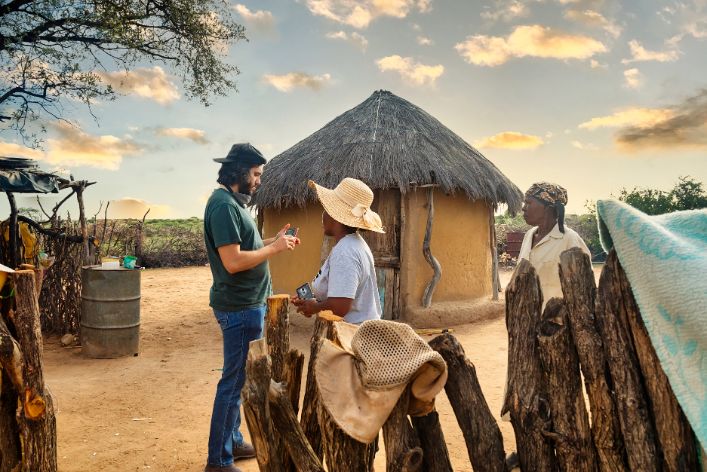
The Impact of African NGOs on Poverty Reduction
Poverty is one of the most significant social issues facing Africa. World Bank estimates that over 400 million people in sub-Saharan live on less than $1.90 daily.
Fortunately, non-profit organizations (NGOs) have taken the lead in the fight against poverty in Africa to address this issue. Here’s how some of them have done it:
Establishing Microfinance Banks with Low-Interest Loans
NGOs have significantly contributed to the fight against poverty in Africa, particularly through their initiatives to empower local populations and offer lasting solutions.
A typical instance of such a program is microfinance, which provides small loans to people and organizations so they can launch or grow their businesses.
Through this program, NGOs have helped millions of Africans become self-sufficient and earn money to support their families. This strategy has been effective because it helps establish long-term financial stability in addition to addressing people’s immediate financial needs.
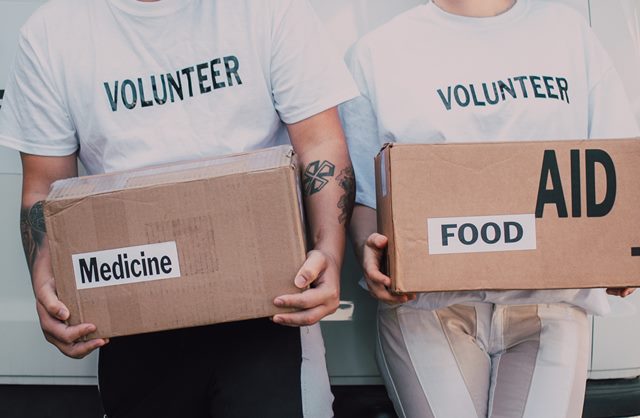
Capacity Building
Another effective strategy African NGOs use is capacity building. This focuses on educating and training people and communities in various skills, including agriculture, health, and education.
Communities have benefited from this strategy by growing their capacity for income generation. It has helped them become more financially independent and provided access to necessities like healthcare and education.
This strategy has been effective because it strongly emphasizes sustainable development and encourages local communities to take charge of their own development.
Policy Reform and Advocacy
African NGOs have been vocal advocates for policy reform. They have been able to affect policy choices and raise awareness of the problem of poverty in Africa by collaborating with governments and international organizations.
This has increased funding for initiatives aimed at reducing poverty and allowed NGOs to broaden their influence.
Despite these accomplishments, NGOs continue to face many challenges in their attempts to eradicate poverty in Africa. The most considerable difficulty is obtaining funding. Numerous NGOs depend on donor funding, which can be unpredictable and scarce.
Lastly, NGOs encounter opposition and limitations in their operations from some governments that do not support them.
Read: Sustainable Development in Africa: Strategies and Innovations For Building a Better Future
The Role of NGOs in Improving Healthcare in Africa
Improving healthcare in Africa calls for the cooperation of many stakeholders, including governments, businesses, and non-profit organizations.
NGOs are essential in this process because they give marginalized communities access to healthcare and educational resources. Here’s how NGOs have helped to improve healthcare in Africa:
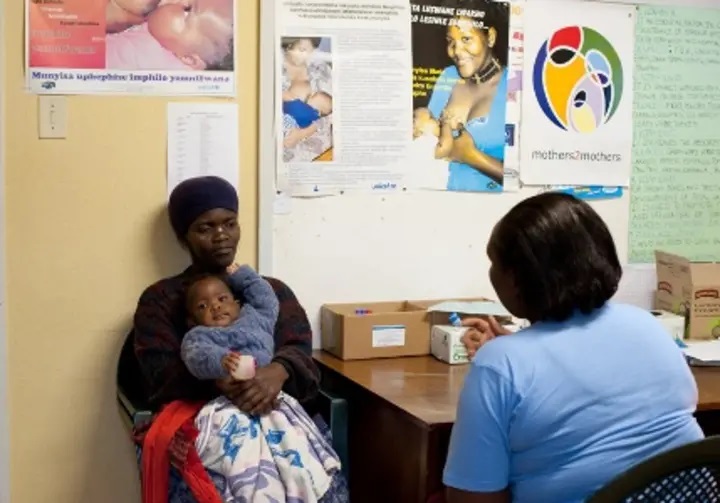
Free Medical Services to Underprivileged People
NGOs have significantly improved African healthcare by offering medical assistance and services to underserved communities.
Among these are primary care, maternal and child health, and disease prevention and treatment. NGOs collaborate with neighborhood hospitals and health centers to deliver these services, ensuring local populations have access to fundamental medical care.
For instance, the African Medical and Research Foundation (AMREF) has implemented a program to educate community health workers in faraway parts of Africa. This foundation sees to giving them the necessary medical expertise and knowledge to help their communities.
Focus on Particular Health Crisis
NGOs are essential in tackling particular health issues in Africa. With over 25 million people suffering from HIV/AIDS in sub-Saharan Africa, the AIDS epidemic has been a major problem on the African continent.
NGOs like the Elizabeth Glaser Paediatric AIDS Foundation have implemented programs to offer HIV testing, treatment, and prevention services to mothers and kids suffering from the illness.
Thanks to these programs, the HIV spread rate has decreased, and the quality of life of those living with HIV has improved.
Free Training for Medical Professionals
NGOs offer training and education programs to equip healthcare professionals, community leaders, and other stakeholders with the abilities and knowledge required to address health challenges effectively.
For instance, the Carter Centre organizes programs that educate health professionals on preventing and treating river blindness. This is a common parasitic disease in many parts of Africa.
The Efforts of NGOs on African Education
African socioeconomic development and poverty reduction depend heavily on education. And NGOs are of the utmost importance in fostering education in Africa. This is especially true when it comes to ensuring that marginalized communities have access to it.
Access to education for underserved communities is one of the main ways NGOs support education in Africa. Such initiatives are crucial in rural and remote areas with little access to education. Here are some ways these NGOs are helping to improve African education:
Building Schools and Providing Learning Materials
African NGOs collaborate with regional groups to construct schools and provide learning tools like textbooks, computers, and instructional materials. By increasing the number of students enrolled in schools, these initiatives have helped communities that would not otherwise have access to education.
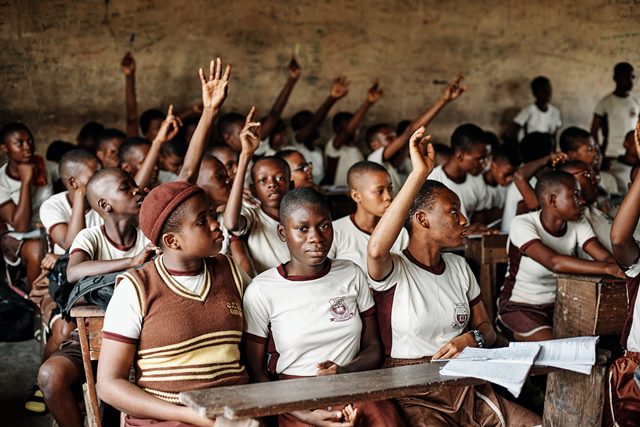
Teacher Training and Curriculum Development
The quality of education in many African communities is significantly low. Thankfully, some African NGOs are on a mission to change that.
They do this by offering teacher training, curriculum development, and providing tools that enhance the quality of teaching and learning. This has helped raise the educational standards in these underprivileged areas.
For example, the Teach for All program, used in many African nations, recruits, and trains teachers to work in schools in underprivileged neighborhoods. The foundation also gives opportunities to children who would not otherwise have access to quality education.
Collaboration with Government and International Organizations
Furthermore, NGOs collaborate with governments and other stakeholders to create education-supporting policies. This leads to increase funding for educational initiatives and guarantees that education is a top priority in national development strategies.
One good example is the Global Partnership for Education. GPE collaborates with African governments to support creating and implementing educational policies that guarantee all children have access to high-quality education.
The Role of NGOs in Promoting Peace and Conflict Resolution in Africa
Many African communities suffer from the effects of wars, conflicts, and other forms of violence. This means there are no foreign investments in the area, and the quality of living is generally low.
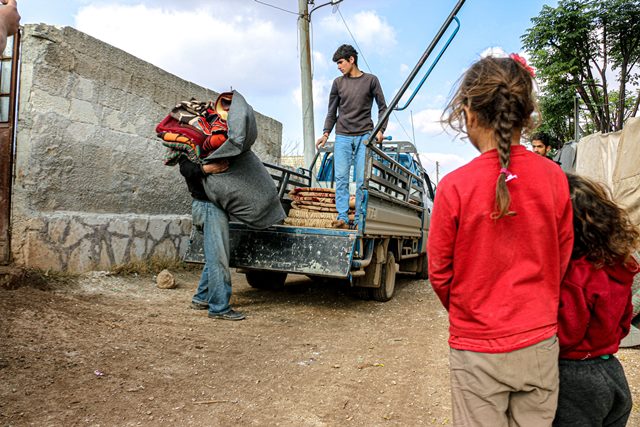
Conflict Resolution
Progress and development in Africa depend heavily on peace and stability. But lots of disputes in African nations pose a threat to the continent’s peace and security. As a result, NGOs significantly impact the promotion of peace and conflict resolution in Africa.
Initiatives to resolve disputes and build peace are among the primary ways NGOs support African peace. These initiatives collaborate with communities and other stakeholders to address the underlying causes of conflicts and promote peace and reconciliation.
NGOs help communities affected by conflicts through mediation, negotiation, and dialogue to help them settle their disputes amicably.
For instance, in South Sudan, the Centre for Humanitarian Dialogue (HD) is doing its best to carry out peacebuilding programs that unite warring factions and foster peace.
NGOs significantly contribute to the advancement of justice and human rights in Africa. These NGOs offer victims of human rights violations adequate support and legal assistance. They help them in pursuing justice and holding offenders accountable.
In Sierra Leone, the International Centre for Transitional Justice (ICTJ) has implemented a program that addresses the legacy of human rights abuses committed during the nation’s civil war.
Collaboration with Government and Stakeholders
Moreover, NGOs collaborate with governments and other stakeholders to advance laws and procedures that promote peace and resolve disputes. They also offer training on conflict resolution and prevention to communities and educate people about the value of peaceful coexistence.
For example, the West Africa Network for Peacebuilding (WANEP) has lobbied to support peaceful elections in West Africa. This has helped lower the frequency of election-related violence in the area.
African NGOs play a significant role in addressing the various social issues the continent is facing. Putting poverty reduction plans into action, promoting credit and financial access, and assisting small and medium-sized businesses contribute significantly to the fight against poverty.
Furthermore, NGOs are important in improving education by widening access to high-quality instruction programs and boosting literacy rates.
NGOs are also working to eliminate gender inequality in Africa by addressing its underlying causes, such as harmful cultural traditions, prejudice, and violence against women and girls. They support women’s participation in social and political decision-making, access to education and healthcare, and economic emancipation.
It’s important to support the works of African NGOs now more than ever to improve their impact and pull Africa out of the many troubles that face the continent.
Before you go…
Hey, thank you for reading this blog to the end. I hope it was helpful. Let me tell you a little bit about Nicholas Idoko Technologies. We help businesses and companies build an online presence by developing web, mobile, desktop, and blockchain applications.
We also help aspiring software developers and programmers learn the skills they need to have a successful career. Take your first step to becoming a programming boss by joining our Learn To Code academy today!











